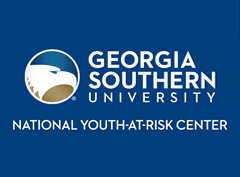How to Build a Transformational School Climate: The 5 Power Tools
Focused Area
Improving School Climate for Youth-At-Risk
Relevance to Focused Area
This presentation provides specific "take-home" tools that build a welcoming, trauma-responsive and motivating school climate. Many presentations on school climate emphasize the importance of climate but don't necessarily provide the "how to" strategies required to build, monitor, maintain and improve school culture. This presentation provides 5 practical strategies.
Primary Strand
Academic Achievement & School Leadership
Relevance to Primary Strand
In my view, school culture is the #1 job of school leadership. School climate has a profound impact on the academic motivation students bring to school. Because so many of our at-risk students have negative associations with school and/or learning, it is essential that leaders create a culture that positively impacts student attendance and increases student motivation to do the academic work required for success. This presentation provides school leaders with the practical tools to establish such a culture.
Brief Program Description
Leaders are frequently told how important school climate is to student success--but are often not provided the practical tools to create and implement a school culture that positively impacts attendance and motivates the hard work necessary for academic success. Learn the 5 "Power Tools" needed to establish, monitor and maintain a transformational school culture for at-risk students!
Summary
Participants in this workshop will be provided 5 "Power Tools" for building a transformative school culture that motivates student attendance and student effort toward academic goals. For at--risk students, it all starts with attendance and school climate has a significant impact on whether students show-up. In addition, making academic progress involves hard work and development of a high frustration tolerance. Again, a positive school culture supports student motivation to put in the hard work and to work through set-backs in that academic journey. This presentation shares 5 practical tools for building such a culture:
1) The Culture Card. The desired school culture is embodied on a card every staff member carries. Each school day starts with a "culture card meeting" where staff meet to discuss a component of the desired culture and what that component looks like in actual practice during the school day. Assures culture is talked about every day and that staff know what the desired cultural behavior looks like in context.
2) Community Meeting. Small groups of students meet for 20 minutes each morning during CM. Staff use team-building strategies to check-in with students, develop cohesive, supportive teams and build deep, positive relationships among students in each team.
3) Progress Profiles. Instead of an "academics-only" report card, students are provided a monthly progress report on 7 areas of growth and development. This "Whole-Person" profile boosts motivation by showing students how they are adding skills in areas such as self-regulation, physical health, mental health and executive function.
4) Relationship Matrixes. Each staff member is assigned a number of students with whom they will form a mentor relationship.
5) Recognition and Celebration. A system through which both student and staff transformation that is consistent with the culture card principles are recognized and rewarded.
Each of these 5 tools will be described in detail and participants will be provided the resources to implement them immediately.
Evidence
Have utilized these 5 tools within my own non-profit organization that operates 7 schools, 3 group homes, therapeutic foster care and outpatient mental health clinics. Outcomes have exceeded national averages in placing students in least restrictive care settings. Outcomes verified by study completed by George Washington University. Tools were then disseminated in other at-risk settings with documented success including youth detention facilities, native-american school district, and residential youth care. Several articles and two books have been published regarding this approach to building a transformative culture in programs for at-risk youth.
Format
Individual Presentation
Biographical Sketch
Frank Kros is a career child advocate who has served as a childcare worker, child abuse investigator, children’s home administrator, consultant, college professor, attorney, writer and speaker. Frank currently serves as president of The Upside Down Organization, executive vice president and chief operating officer of The Children’s Guild, and director of the National At Risk Education Network (NAREN). Frank presents professional development workshops and consultations worldwide to students, parents, educators, child-serving professionals and their leaders on various topics including brain-based learning, attention-deficit hyperactivity disorder (ADHD), neuroscience of the teenage brain and brain-inspired leadership. Frank has presented his workshops at national education, and social work conferences and his work has also taken him to Singapore, Indonesia, Germany, Canada, Latvia and Switzerland. In addition to lecturing nationally and internationally, he has co-authored the books Creating the Upside Down Organization: Transforming Staff to Save Troubled Children and Creating the Upside Down Organization: Reinventing Group Care. Frank earned a bachelor’s degree in psychology from Creighton University, a master’s degree in social work from the University of Nebraska-Omaha and a law degree from Notre Dame Law School.
Start Date
10-26-2017 12:30 PM
End Date
10-26-2017 1:45 PM
Recommended Citation
Kros, Frank J., "How to Build a Transformational School Climate: The 5 Power Tools" (2017). National Youth-At-Risk Conference, West (2015-2017). 5.
https://digitalcommons.georgiasouthern.edu/nyar_vegas/2017/2017/5
How to Build a Transformational School Climate: The 5 Power Tools
Leaders are frequently told how important school climate is to student success--but are often not provided the practical tools to create and implement a school culture that positively impacts attendance and motivates the hard work necessary for academic success. Learn the 5 "Power Tools" needed to establish, monitor and maintain a transformational school culture for at-risk students!
